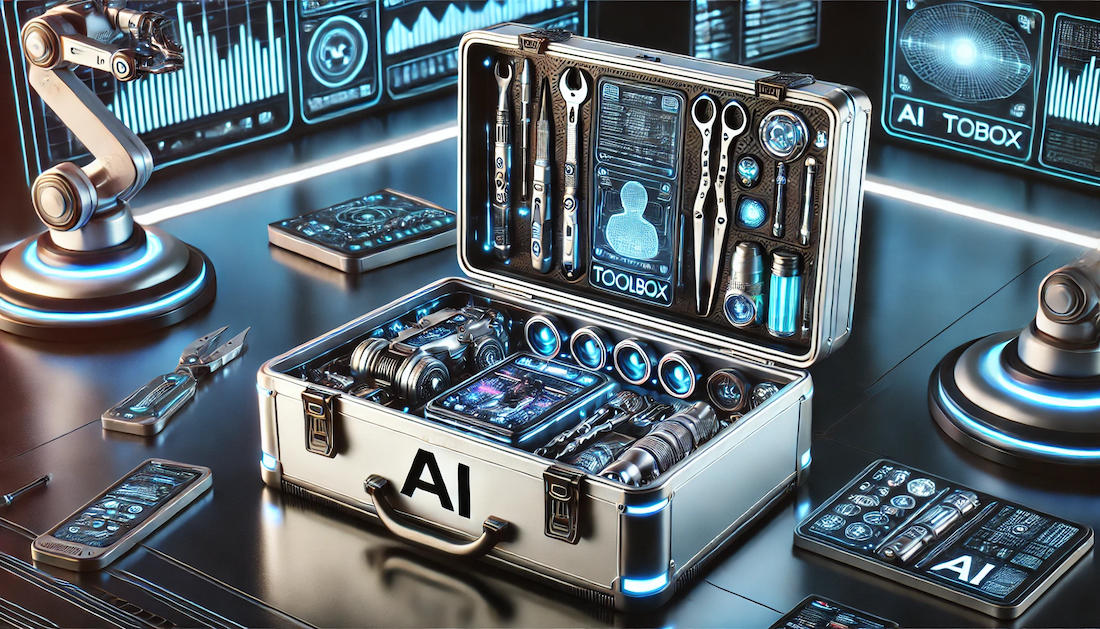Best Startup Accelerators Compared: YC, Techstars, 500 Global, and More


Are you looking for ways to boost productivity across your business? Over the past few years, there’s been a boom in artificial intelligence (AI) tools that address different business needs and help boost productivity across organizations.
To help you navigate this world of AI-powered tools, we’ve compiled a list of the best AI tools to boost business productivity, organized by category.
A standard negative outlook on AI is that it will take away people's jobs. While I have no idea what the future holds for AI, its best use cases, I've found, are acting as copilots, helping workers do their jobs more efficiently and effectively.
Before exploring the various AI tools, we'll first provide a background on artificial intelligence and how it's currently helping businesses.
AI tools are software applications that utilize artificial intelligence to automate tasks, provide insights, and enhance decision-making. These services might be embedded in existing software as AI-powered features, such as Microsoft’s Copilot, or stand-alone AI powered tools like ChatGPT.
The key value propositions of AI tools (for now anyway) are increasing efficiency, reducing costs, and improving customer experiences. No matter what business function, AI features and tools are likely available, including marketing, sales, customer service, and operations.
Top AI tools include ChatGPT, Zapier, Notion AI, Fireflies, and Grammarly. They can help you with everything from content creation to knowledge management, tasks, writing, data analysis, and streamlining workflows.
In this guide, we’ll dive deeper into each category of AI tool and help you find the best products to leverage AI and boost your business productivity.

The biggest AI breakthrough came with the release of ChatGPT - the original AI chatbot. Just about everyone has played around with one of these by now. AI chatbots function as very powerful search engines and AI-powered writers. They are useful because they are flexible - you can ask them to do a lot of different tasks, from drafting content, to coding, to cleaning up spreadsheets.
Some of the top chatbots include:

We’ve also probably all interacted with AI virtual assistants - they’re embedded into our phones, TVs and homes with the likes of Siri, Alexa, and the Google Assistant. There’s additional emerging tools and AI features to help with task management, meeting notes, scheduling, and more. These AI virtual assistants can integrate with other tools to improve task management and scheduling, enhancing overall productivity.
AI virtual assistants can be categorized into various types based on their functionalities:
Some popular AI virtual assistants:

AI tools are a game-changer if you’re doing lots of content marketing. These tools provide valuable insights that enhance decision-making and efficiency in content creation by automatically analyzing data and optimizing content. These tools help you draft engaging, SEO optimized content for things like blogs and social media posts.
Here are some content creation tools that boost creative productivity, categorize by content type.

AI tools can generate blogs, social media posts, and all your other content. But, we all know an AI-generated article when we see one. When it comes to writing, it’s still best to use AI as a copilot rather than a replacement for human creativity.
Here are a few tools that help you do just that:

AI-powered task management tools can help with tasks such as task creation, assignment, and tracking.
Some examples include:

AI-powered automation tools can help with tasks such as automating workflows and integrating apps.
Some examples:
AI tools offer an array of opportunities for businesses to enhance productivity, streamline operations, and stay competitive. From AI chatbots and virtual assistants that help you solve problems or answer questions, to sophisticated content creation and automation tools, AI is helping us get more work done faster and better.
AI is a branch of computer science that involves creating systems capable of performing tasks that typically require human intelligence. These tasks include problem-solving, understanding language, recognizing patterns, and learning from experience. AI systems use algorithms and data to make decisions, often mimicking cognitive functions associated with the human mind. The goal of AI is to improve efficiency, enhance decision-making, and provide insights across various domains.
Machine learning is a subset of AI that involves training algorithms to learn patterns and make decisions from data without being explicitly programmed. It uses statistical techniques to enable machines to improve their performance on tasks over time as they are exposed to more data. Machine learning is used in various applications, including predictive modeling, natural language processing, and image recognition. By identifying patterns in data, machine learning models can make predictions and adapt to new information.
AI as a field of study was founded by a group of scientists and researchers in the mid-20th century. One of the key figures is John McCarthy, who coined the term "artificial intelligence" in 1956 and organized the Dartmouth Conference, which is considered the birthplace of AI as an academic discipline. Other pioneers include Marvin Minsky, Allen Newell, and Herbert A. Simon, who contributed to early developments in AI research and theory. Their work laid the foundation for AI as we know it today.
AGI, or Artificial General Intelligence, refers to a form of AI that possesses the ability to understand, learn, and apply knowledge across a wide range of tasks at a level comparable to human intelligence. Unlike narrow AI, which is designed for specific tasks, AGI would have the capacity to perform any intellectual task that a human can do. The development of AGI remains theoretical and is a long-term goal in the field of AI research, with significant ethical and technical challenges to address.
To use AI effectively, businesses should identify areas where AI can enhance efficiency, decision-making, or customer experience. Start by selecting appropriate AI tools that align with specific business needs, such as AI chatbots for customer service or automation tools for streamlining operations. Integrate these tools into existing workflows and ensure that teams are trained to leverage AI capabilities. Continuously evaluate the impact of AI on business processes and adjust strategies to maximize benefits.
AI is important because it enables businesses and organizations to automate tasks, enhance decision-making, and improve efficiency. AI can analyze large volumes of data quickly, providing insights that would be impossible for humans to achieve in a short time. It helps in improving customer experiences, optimizing operations, and reducing costs across various industries. By leveraging AI, companies can stay competitive and adapt to changing market demands.
AI is a broad field of computer science focused on creating systems that can perform tasks requiring human-like intelligence, such as reasoning and problem-solving. Machine learning is a subset of AI that specifically deals with training algorithms to learn patterns from data and make predictions or decisions without being explicitly programmed. While AI encompasses a range of technologies and applications, machine learning is one of the key techniques that enable AI systems to learn and improve over time.
Foundation models in generative AI are large-scale, pre-trained neural networks designed to perform a wide range of tasks with minimal fine-tuning. These models, such as GPT-3 and DALL-E, are trained on vast amounts of data and can generate content, including text and images, based on input prompts. They serve as a base for various applications, allowing developers to leverage their capabilities for specific tasks with fewer resources and less training data.
AI is used across various industries to automate processes, enhance decision-making, and improve customer experiences. In business, AI tools like chatbots and virtual assistants streamline customer service and support. In healthcare, AI assists in diagnostics and personalized medicine. AI is also used in finance for fraud detection, in marketing for personalized content, and in manufacturing for predictive maintenance and quality control.
AI tools are software applications that utilize AI technologies to perform tasks, analyze data, and automate processes. These tools can range from AI-powered features within existing software, like Microsoft’s Copilot, to standalone applications like chatbots, virtual assistants, and content creation platforms. They help businesses increase efficiency, reduce costs, and enhance customer experiences across various functions, including marketing, sales, customer service, and operations.
Chatbots are a great tool for marketing automation and AI because they provide instant, personalized interactions with customers, enhancing user engagement and satisfaction. They can handle a high volume of inquiries simultaneously, freeing up human resources for more complex tasks. Chatbots also collect valuable data on customer preferences and behaviors, enabling businesses to refine their marketing strategies. By automating routine interactions, chatbots help businesses efficiently manage customer relationships and improve overall service quality.
AI is transforming the world by revolutionizing industries and enhancing how we work and live. AI enables automation of routine tasks, allowing for increased efficiency and productivity. It provides powerful tools for data analysis, leading to more informed decision-making and innovation. AI-driven technologies are improving healthcare outcomes, enhancing customer experiences, optimizing supply chains, and contributing to advancements in fields like autonomous vehicles and smart cities.